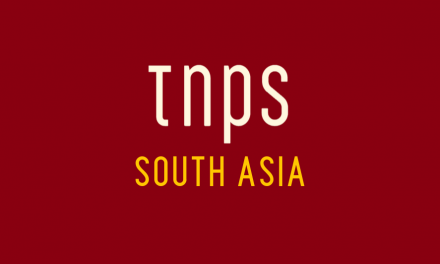38 books have been prevented from sale at the 13th Erbil International Book Fair in Iraq’s Kurdistan, and the silence from the freedom of speech supporters has been deafening.
In stark contrast to the outrage occasioned by Kuwait’s (admittedly larger scale) censorship –
A mermaid wearing a bra among the books banned in Kuwait, but protests are gathering momentum
the world chose to look the other way when it was announced that,
The Kurdistan Regional Government (KRG) prevented 38 books from being sold at the annual Erbil International Book Fair for promoting radical ideologies.
As I opened in the post on Kuwait,
Censorship is a difficult topic that arouses strong emotions, but of course all freedom of speech is relative.
From national security to Holocaust denial to incitement to hatred to advocating underage sex, almost every country censors at some level.
So the announcement by Niyan Ahmed, Deputy Director General of printing and publication in the Kurdistan Region’s Ministry of Culture and Youth, that
This year, we have prevented 38 books from being sold at the fair. All of them were local and brought from inside the Kurdistan Region,
should be viewed in the light of acceptable regional security, not religious oppression.
In fact,
Books related to religion, namely Islam, are some of the top-selling books at the fair.
Last year the Erbil fair had 200 unacceptable books on the banned list, following the emergence of the Islamic State (IS) in 2014.
It’s a balancing act the International Publishers Association will have to perform with extra care this next four years or so as the organisation’s first Arab woman representative, Bodour Al Qasimi, assumes the vice presidency of the IPA in January, with the expectation to become president in 2021.
Not, of course, that censorship is an issue peculiar to the Middle East. In 2020 Kuala Lumpur becomes World Book Capital despite rumbling concerns about censorship in Malaysia, and everywhere from China to Kuwait to the USA, the issue of censorship remains a challenge to publishers around the globe
TNPS will be watching with interest to see how Hugo Seltzer and Bodour Al Qasimi rise to the censorship challenge.
Meantime, let’s give the Erbil International Book Fair some coverage, given it is getting little attention elsewhere in the industry media.
For the 13th edition of the Erbil fair, some 250 publishers from 35 countries are exhibiting over 700,000 books, primarily in Kurdish, Arabic, and English.

Image from 12th Erbil International Book Fair 2017
No visitor numbers for Erbil yet, but Erbil’s big sister, the Baghdad International Book Fair attracted crowd of 300,000 earlier this year.
That’s impressive for a country still in transition, as Iraq is, but small beer for the Arab world, where book fairs are, improbable though it may sound, among the biggest cultural events in the MENA (Middle East North Africa) region.
Later this month the Algiers International Book Fair kicks off in Algeria. Not perhaps a country we in the outside world associate with an interest in books. Yet last year the Algiers event attracted a crowd of 1.7 million.
A few days later the Sharjah International Book fair kicks off in the UAE. Last year 2.38 million turned out.
And in January the world’s biggest book fair opens, in Cairo.
Bigger than Sharjah? Try bigger than Sharjah and Algiers combined.
And if that weren’t enough, happening right now in Dubai is the first Middle East Big Bad Wolf sale, where Malaysia’s Big Bad Wolf is running an eleven day 24/7 non-stop book sales with over 3 million English-language books up for grabs.
Wherever we draw a line in the sand on what is and isn’t to be allowed to be published, we should be in no doubt the Arab book markets are lining up to be among the most exciting on the planet as we enter the next decade.





